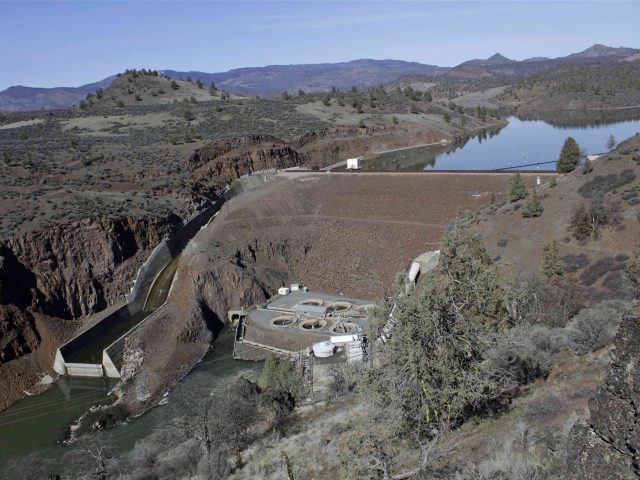The State of California is about to begin removing the first of four dams on the Klamath River — despite an extreme drought and a looming electricity generation crisis — to improve habitat for migratory salmon and satisfy Native American groups.
As the Associated Press (via Breitbart News) noted earlier this year, President Joe Biden’s administration reversed course after President Donald Trump’s administration blocked the dam removal on California’s second-largest river, which was planned in 2016 after California and Oregon signed an agreement to demolish the dams but still required federal approval.
Now, the demolition has been scheduled for 2023, awaiting only confirmation that dam removal itself would not harm fish.
The San Francisco Chronicle reported Saturday:
The first of four aging dams on the Klamath River, the 250-mile waterway that originates in southern Oregon’s towering Cascades and empties along the rugged Northern California coast, is on track to come down in fall 2023. Two others nearby and one across the state line will follow.
The nearly half-billion dollars needed for the joint state, tribal and corporate undertaking has been secured. The demolition plans are drafted. The contractor is in place. Final approval could come by December.
Now, among the last acts of preparation, scientists are trying to make sure the fish and wildlife that are intended to benefit from the emergence of a newly wild river will thrive. While the decision to remove the hydroelectric dams was financial, it was urged —and enabled — by those hoping to see a revival of plants and animals in the Klamath Basin.
The state has not built new reservoir capacity in four decades, while California’s population has continued to grow, making the ongoing three-year drought even more onerous.
Moreover, the state has suffered blackouts in heat waves due to the lack of sufficient energy, as fossil fuel power plants are phased out, along with nuclear power plants. Solar and wind power are not yet able to make up the missing power supply because they are unreliable in calm conditions and in overcast weather.
Earlier this month, the California Coastal Commission rejected a plan to build a desalination plant in Orange County that would alleviate water shortages, as desalination has successful done in San Diego County and in Santa Barbara.
Joel B. Pollak is Senior Editor-at-Large at Breitbart News and the host of Breitbart News Sunday on Sirius XM Patriot on Sunday evenings from 7 p.m. to 10 p.m. ET (4 p.m. to 7 p.m. PT). He is the author of the recent e-book, Neither Free nor Fair: The 2020 U.S. Presidential Election. His recent book, RED NOVEMBER, tells the story of the 2020 Democratic presidential primary from a conservative perspective. He is a winner of the 2018 Robert Novak Journalism Alumni Fellowship. Follow him on Twitter at @joelpollak.

COMMENTS
Please let us know if you're having issues with commenting.